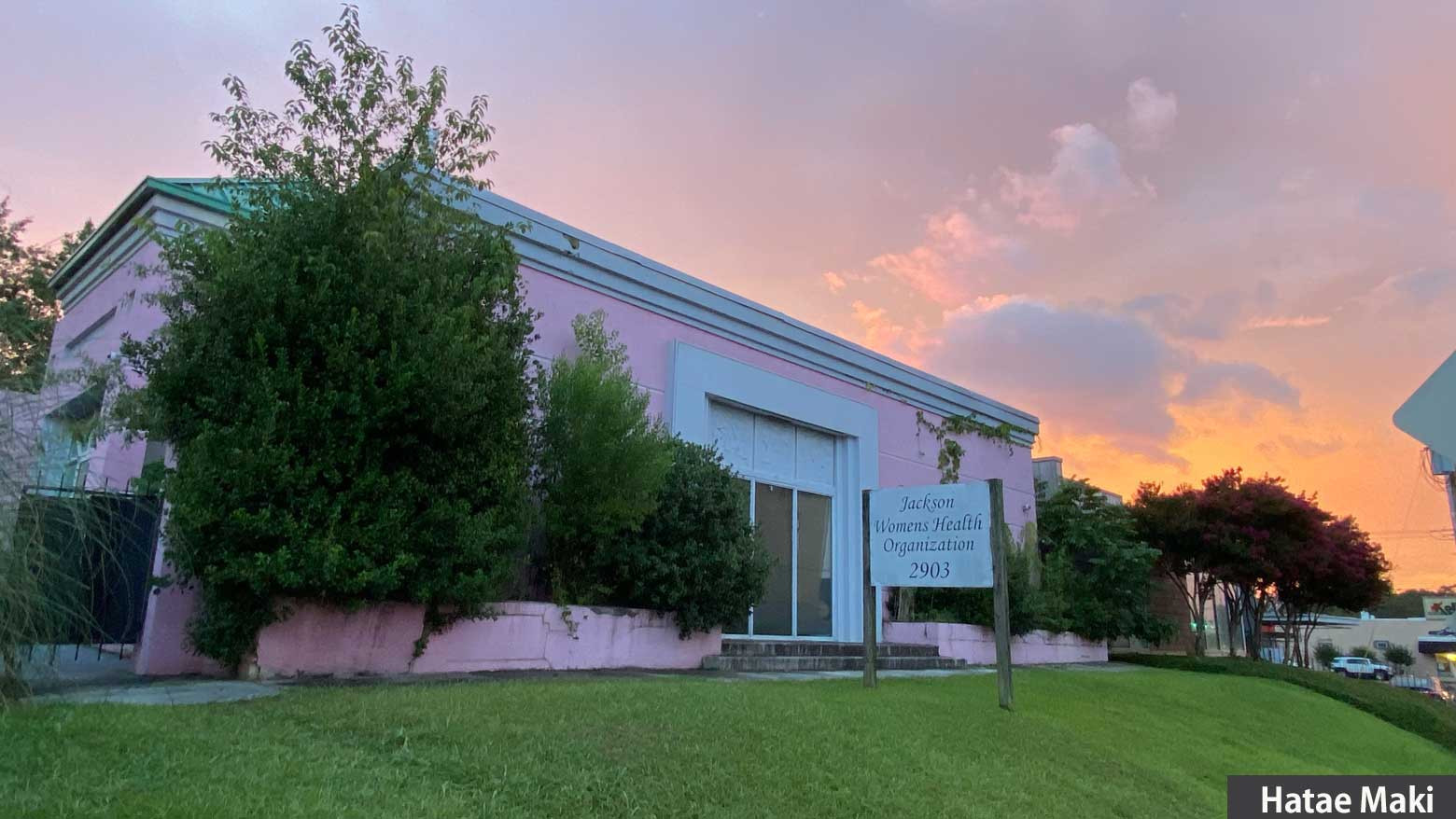Last Day at the Pink House
For staff at the Jackson Women's Health Organization, July 7 was a somber occasion. It was the day the clinic -- the only abortion clinic in the state of Mississippi -- would close its doors for good.
But for the handful of anti-abortion protesters gathered outside the building's main gates, it was a day like any other.
"You are going to die for your sins," one protester shouted at a doctor, Cheryl Hamlin, as she made her way inside.
"You don't care," Hamlin replied. She walked into the clinic shaking her head.
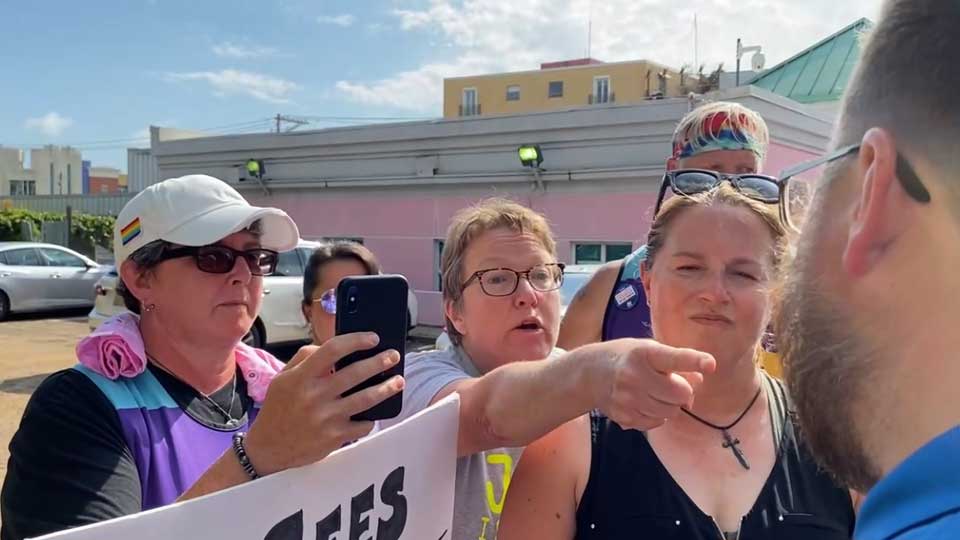
The clinic -- known as the Pink House for the distinctive color of its exterior walls -- provided reproductive healthcare to the women of Mississippi for over two decades.
From 2004, it was the only option for local women after the other clinics in the state closed down.
Hamlin, an obstetrician-gynecologist based in Massachusetts, volunteered at the Pink House for the past five years. She said the experience gave her a close-up look at the desperate state of women's healthcare in the country's poorest state.
"It's cruel," Hamlin said ahead of her last day at the clinic. "I can't imagine not coming back here." Hamlin is now continuing her work in other states that still allow abortion.
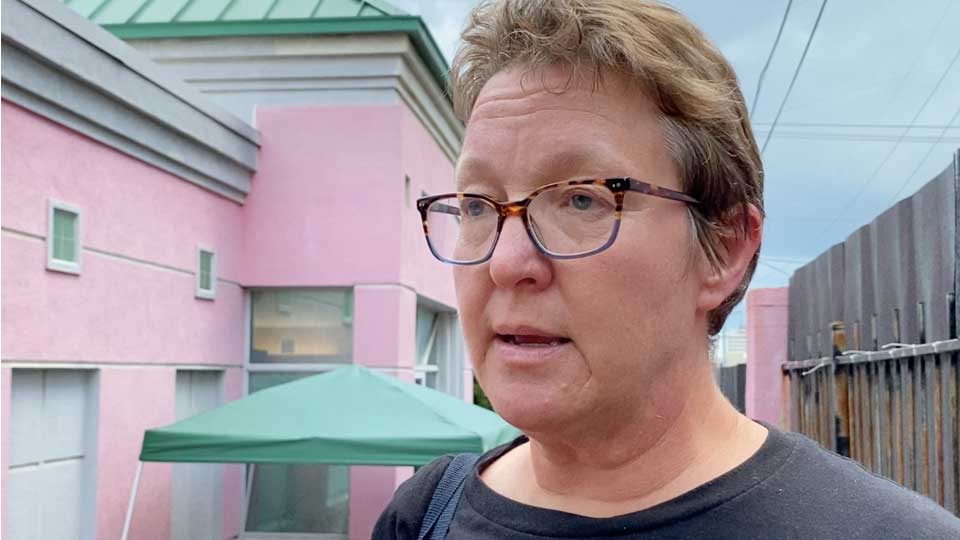
End of Roe v. Wade
In 2018, the Pink House sued the state of Mississippi to challenge its new ban on abortion after 15 weeks of pregnancy.
The state argued that by 15 weeks, a fetus has made important physiological developments, and an abortion becomes more dangerous for the mother.
The time limit is significant because it undermined the so-called viability standard established by Roe v. Wade, which protected a woman's constitutional right to abortion before a fetus can survive outside the womb -- usually 24 weeks.
The case moved its way up the lower federal courts until the Supreme Court decided to hear it in May 2021. The court ruled in favor of the Mississippi ban on June 24.
The majority opinion overruled Roe v. Wade, and included a stern repudiation of the legal reasoning behind the 1973 judgment.
"The Constitution makes no reference to abortion, and no such right is implicitly protected by any constitutional provision," wrote Justice Samuel Alito, who delivered the opinion.
"It is time to heed the Constitution and return the issue of abortion to the people's elected representatives."
Later that day, President Joe Biden held a press conference criticizing the decision, which he called a "realization of an extreme ideology."
"They didn't limit it," he said. "They simply took it away. That's never been done to a right so important to so many Americans."
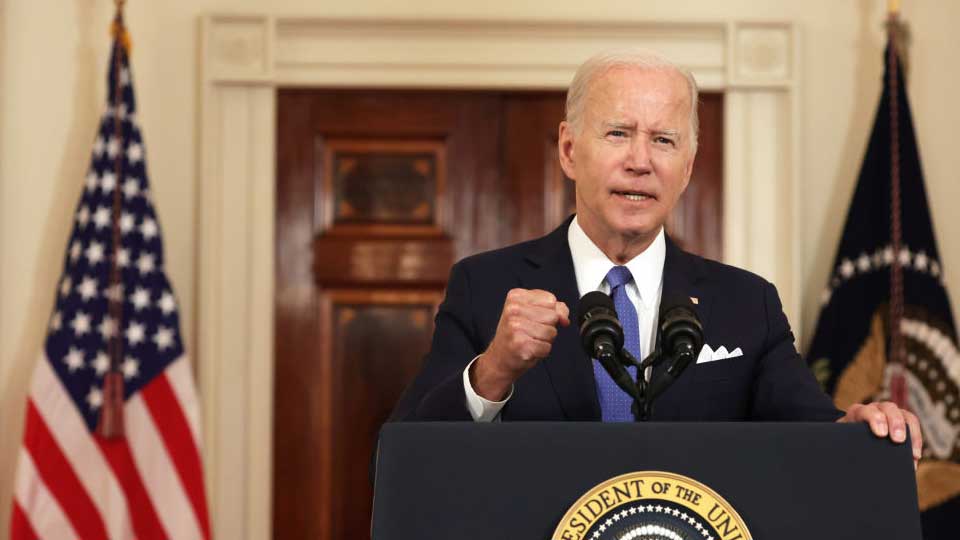
Where States Stand
Several states responded by immediately activating "trigger laws" banning most abortions.
Alabama, Arizona, Arkansas, Idaho, Kentucky, Louisiana, Mississippi, Missouri, Oklahoma, South Dakota, Tennessee, Texas and West Virginia have implemented near total bans, though Arizona's state court issued a temporary stay of the law.
And Georgia and South Carolina have banned terminations after six weeks of gestation, or when ultrasounds detect the heartbeat of a fetus.
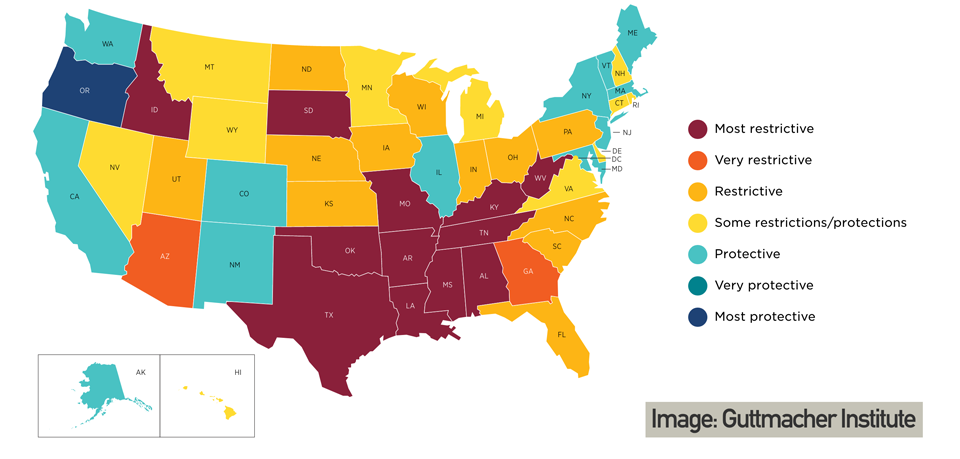
Victory for Anti-Abortion Movement
The shift marked the culmination of a decades-long political campaign for pro-life activists.
"We've worked very hard to elect candidates who will pass [pro-life] legislation," said Carol Tobias, president of the National Right to Life Committee, or NRLC, an anti-abortion lobby group.
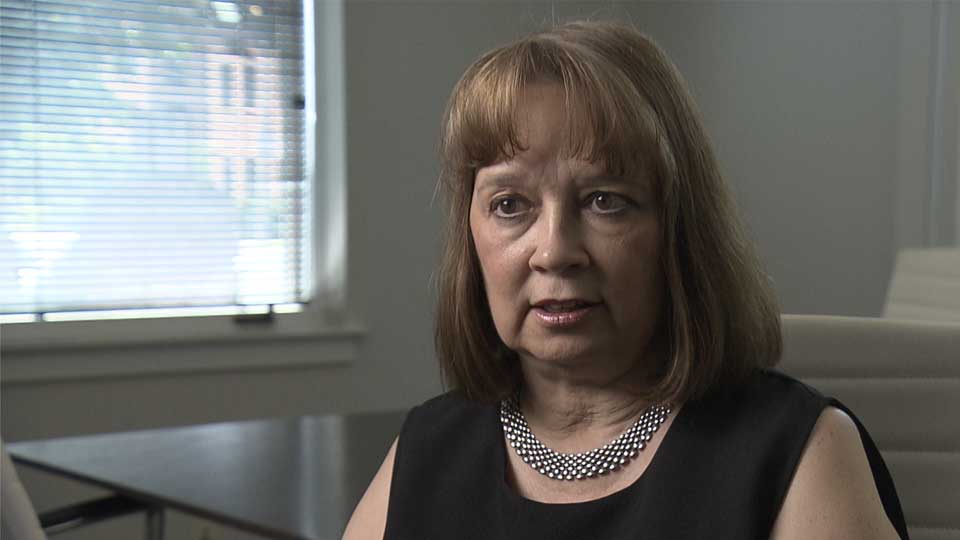
The NRLC and its affiliate organizations lobby on behalf of conservative politicians who will pass pro-life laws at both the local and state level, and for conservative judges who will protect the laws from legal challenges like the one from the Pink House.
The NRLC also works with churches to present women with options other than abortion. Tobias says "educating the public" has been one of the pro-life movement's most effective strategies.
Brian Westbrook became an anti-abortion activist in 2009. He has since founded his own pro-life organization, Coalition Life, in St. Louis, which counsels women against terminating pregnancies.
One of the group's main activities is "sidewalk counseling" outside of abortion clinics. Westbrook says his team of staff and volunteers has so far convinced more than 3,000 women to turn around and go home.
"When people aren't out there, Planned Parenthood or the abortion provider might as well hang up a sign saying 'Open with the blessing of the Christian community.' We don't want them to hang that sign up," says Westbrook.
"We want to make sure they know every single day that abortion is wrong because abortion is taking the life of an unborn child. And it's not only wrong for the child, but also wrong for the mother."
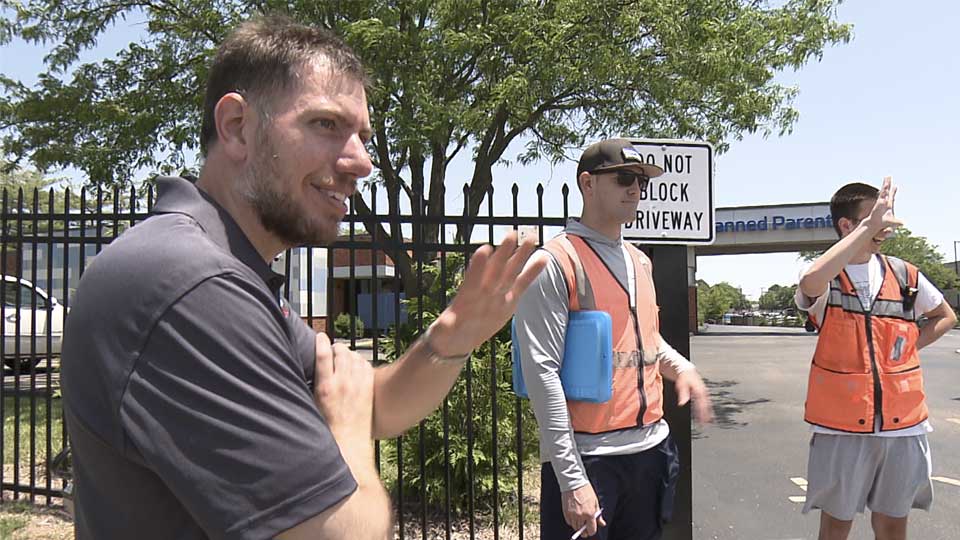
Coalition Life also runs its own consultancy centers that offer free pregnancy tests, counseling, and medical referrals. A full-time nurse is on hand to provide ultrasound images, which Westbrook says is crucial in convincing women against having an abortion.
"One of the most important moments in the ultrasound is when she can actually see that heartbeat," he says. "We always have a second person in the room as well so she's able to talk through the fact that she's seen her child right there on the screen."
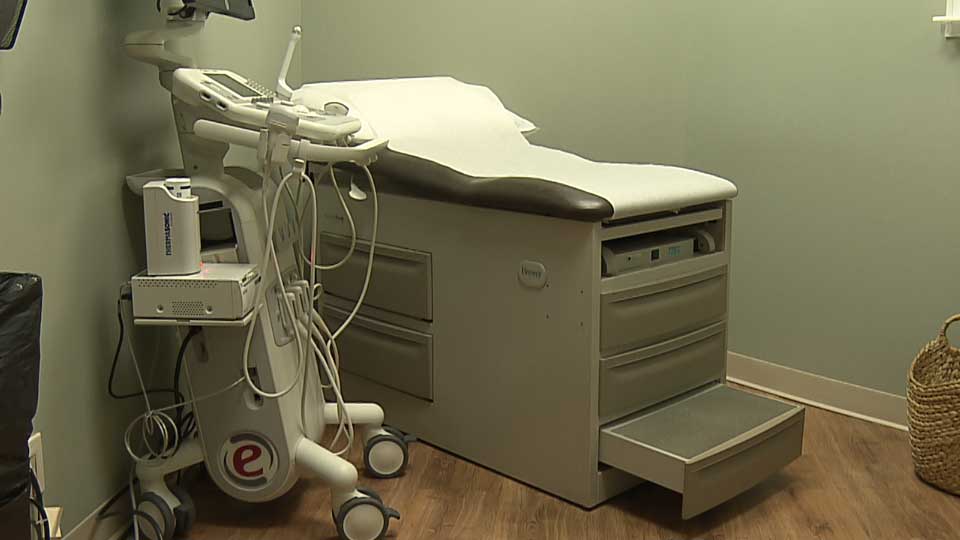
The Fight to Protect Abortion Rights
For pro-choice activists, June 24 concentrated the battle over protecting reproductive rights at the state level.
"We need to be fighting for everyone to have the power to control their own bodies and their futures," says Georgana Hanson, the president of New York-based Planned Parenthood Empire State.
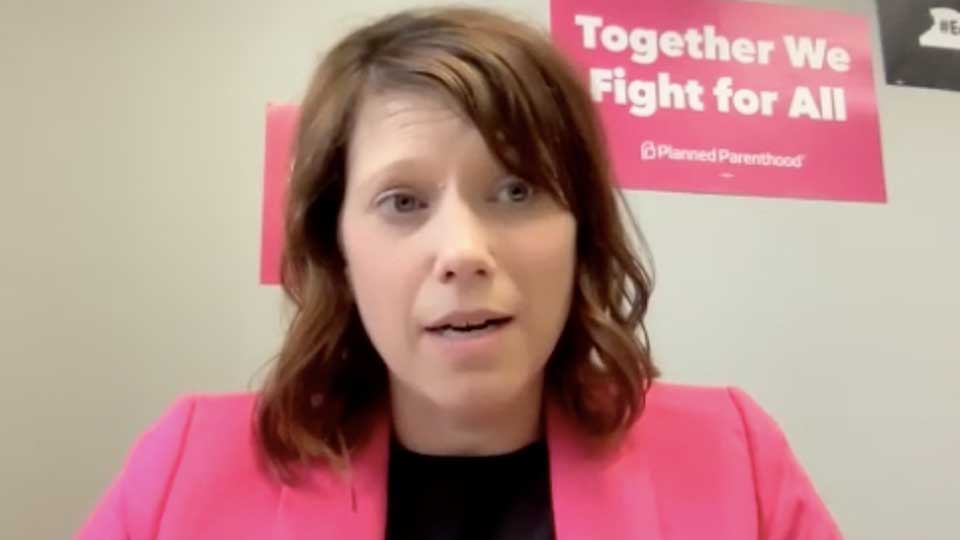
In liberal-leaning states like New York and California, pro-choice advocates and lawmakers were already working to guarantee abortion rights in anticipation of the June 24 decision.
They say they have a duty not only to the women of their states, but to those who will now be coming from other parts of the country.
"We in New York expect that women and their families will come across state lines for these healthcare services," says New York State Senator Liz Krueger. "We want to make sure that when they do, we're ready and have adequate services to provide to large numbers of people."
In June, New York Governor Kathy Hochul signed into law a package of bills providing legal protections to abortion providers and women. Krueger wrote and sponsored some of those bills.
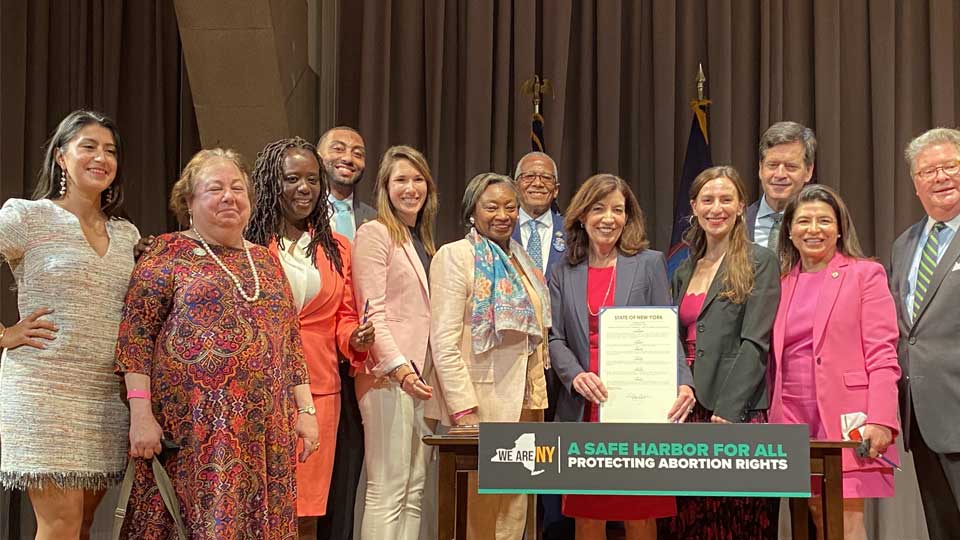
Krueger says the June 24 decision has also helped foster a sense of solidarity among pro-choice state legislators.
She recently joined the Reproductive Freedom Leadership Council, a group of lawmakers who provide each other with technical assistance for legislative initiatives and advice on messaging strategies. It includes more than 350 state legislators from 48 states.
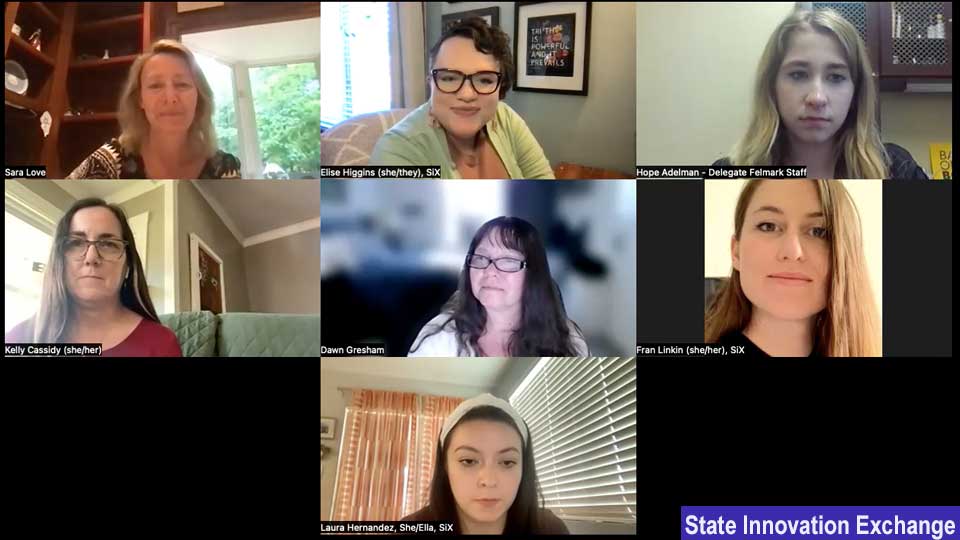
"It's really important that we are coordinating and working together because the more consistency there is among the states that are trying to do something, I think the better it will be for all of us," Krueger says.
The efforts appear to be producing results. A number of states, including some considered to be conservative-leaning, will soon vote to enshrine abortion rights in their constitutions.
Residents of Kansas voted in favor of preserving their right to abortion in an August 2 referendum. Abortion-related measures will be included on ballots in Kentucky, Montana and Vermont during November's midterm elections.
Effect on Midterm Election
According to a recent poll by the Pew Research Center, 61% of adults in the US believe abortion should be legal in all or most cases, while 37% say the opposite.
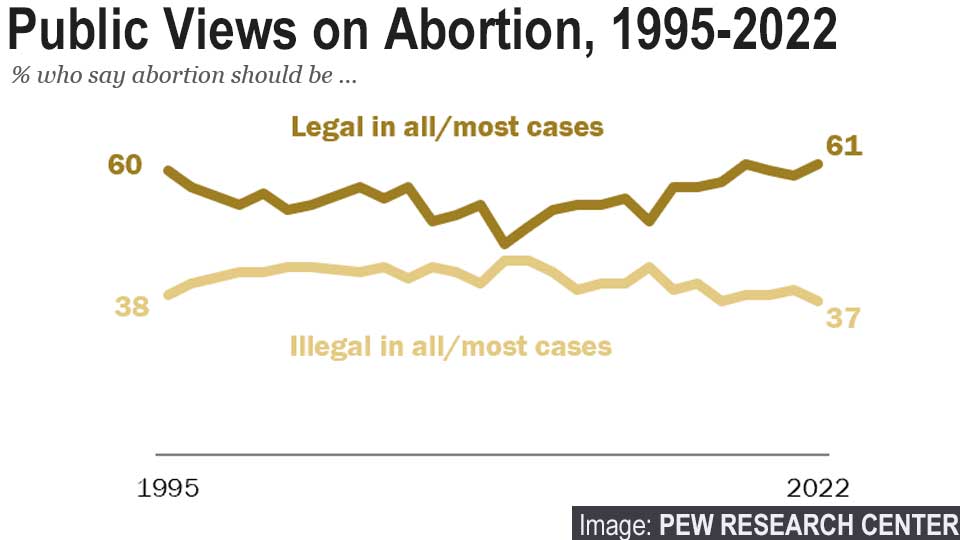
A separate poll found that a majority of people disapproved of the decision to overturn Roe v. Wade.
The abortion issue is expected to have a significant effect on the midterm elections in November. Biden and the Democrats have enjoyed sizable improvements in opinion polls since the June 24 decision, with some forecasters projecting the Democrats will now keep control of the senate.
But with less than one month to go, the outcome of the races are still uncertain and the future of reproductive rights in the country remains in the balance.
